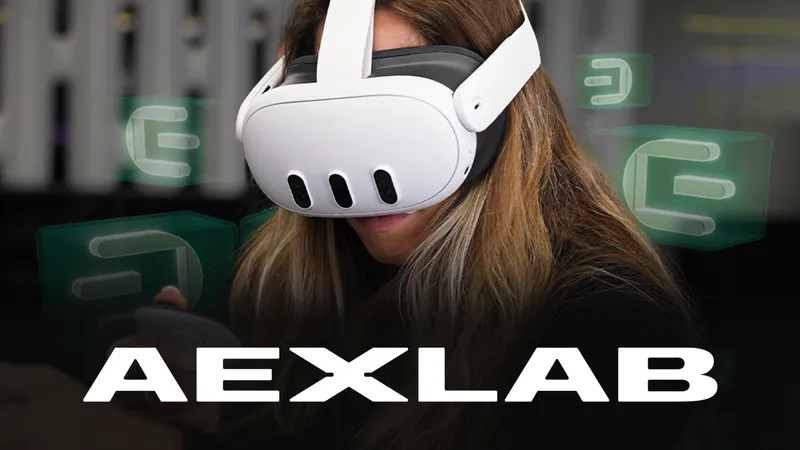The newest inductee into Pether Thiel’s fellowship program is Samuel F. Poirier. The 20 year old founded Retinad, an analytics company that is helping developers and advertisers better understand the way we all behave inside of our virtual reality headsets.
–
Peter Thiel is not a man known for making poor decisions. The Silicon Valley kingmaker initially rose to prominence as a co-founder and CEO of the digital finance mainstay PayPal. Thiel no longer heads that company, but he still maintains a net worth of over $2 billion after a series of savvy investments – the most notable of these being a bit of very early angel funding given to a scrappy little website you may not have heard of. It’s called Facebook.
Now a full-time venture capitalist through his firm Founders Fund, Thiel has become something of a god-amongst-men to tech entrepreneurs around the world. With that awesome power comes awesome responsibility and Thiel has chosen to dole out a portion of his massive influence and resources onto a few carefully chosen young talents through the Thiel Fellowship.
This fellowship awards individual entrepreneurs with a $100,000 “donation” under the premise that they pause, or cancel, their college education in order to focus full time on their unique ventures. This money should not be mistaken for an investment – which would require the entrepreneur to sacrifice some of its equity – but rather it is a ticket that allows these young innovators to continue building towards their goals.
In addition to the cash, Thiel fellows are granted access to a vast network of high profile Valley personalities that is, in many ways, worth immeasurably more than that 100 grand.
For Samuel F. Poirier this is certainly the case. In an interview with UploadVR, he made it perfectly clear that, although he is thankful for Thiel’s generous donation, he would take the network over the cash any day of the week. Poirer’s company is Retinad – a VR analytics startup with 10 employees all working toward one common goal: mapping, diagnosing, and unravelling human behavior inside of a VR headset as thoroughly as possible.
According to Poirier, “We aim to track everything that goes on in a VR app and become the default info platform for virtual reality.”
Retinad does this by creating “Gaze heat maps,” as well as “Working on emotional tracking for things like breathing, laughing and even your head movements.”
As Poirier puts it: “Your head movements are very distinct depending on what your doing. If you’re laughing you have distinct head movements, for example. It’s the same for if you are crying or are happy or stressed.”
Poirier and his team created custom software that detects these fine-tuned motions and translates that into understood behaviors. For example, if you are in an experience that is scary you are more than likely moving your head about quickly so as not to be surprised by any nefarious ghosts or ghouls. These motions are distinct enough for Retinad to track, decipher, and explain to any of its many subscribers.
According to Poirier, that list is constantly growing and includes development houses, studios, and advertisers.
“Advertisers find huge benefit in this type of data,” Poirier said. “They would not want their ad to run while you are in a heightened state of stress or fear, they’d want it to run when you are happy and relaxed. Retinad can help them pinpoint those moments.”
This type of data mining may be too big a pill for some to swallow. There is already a good deal of concern over privacy policies, cookies, and other behavior tracking methods online. Now that the very motion of our heads is being analyzed for advertisers, I had to ask Poirier what his take is on what many may perceive as an invasion of privacy.
“First of all we never reveal individual data to anyone, it is always displayed as the trend of a large group,” Poirier said. “Secondly, we believe that products of any kind need effective feedback in order to become better. Our goal is to provide that information as best we can and drive this industry forward alongside developers.”
As VR technology continues to grow there will be more detailed information for Retinad to mine. Poirier said his company is prepared to incorporate things like eye tracking into its platform as well.
New mediums change the game for everyone, including advertisers, and now it seems the age of the VR ad is fast approaching. However, it remains to be seen whether or not the public at large will accept the fact that the VR device on their head is capable of communicating this type of information.

























